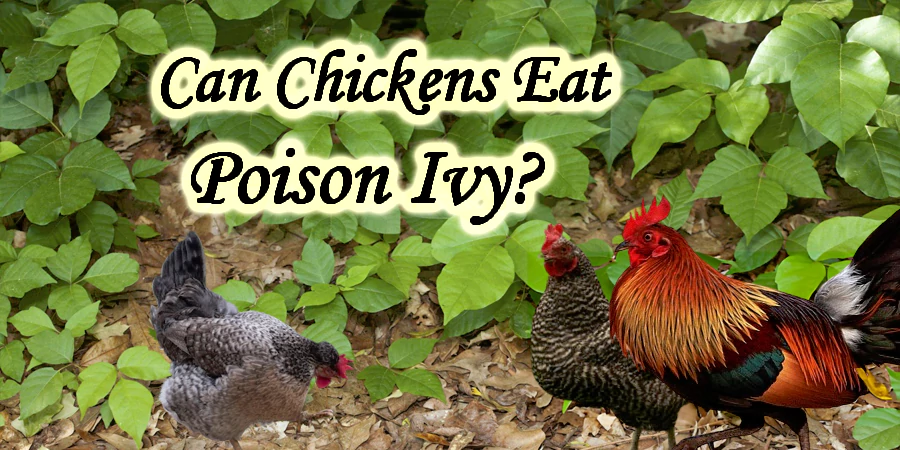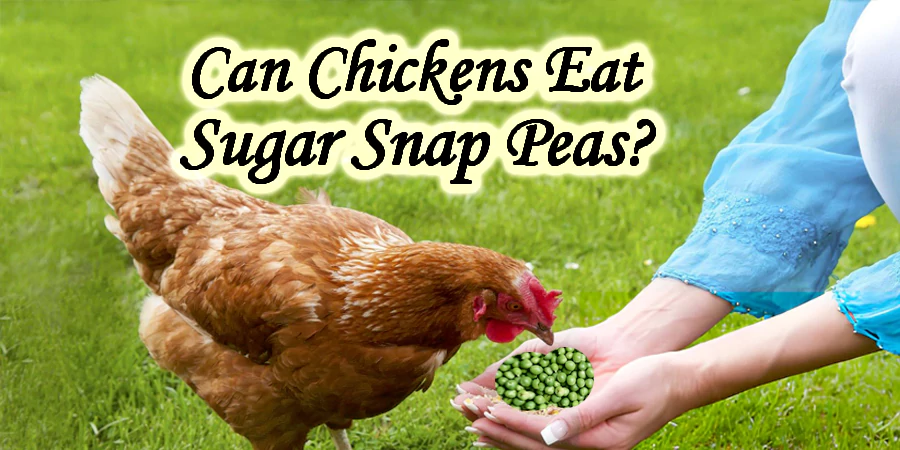Can Chickens Eat Persimmons : What Smart Keepers Must Know!
Published: 14 Jan 2024
Chicken keepers are wondering to feed their flock with a healthy diet. In the journey, the question arises can chickens have persimmons? We will explore the secrets of delectability, nutritious content, side effects, potential benefits, and precautionary measures of serving persimmons to chickens. Chickens like to have diverse diet plans but it can be a tricky decision for their health.
This guide will help chicken lovers to feed their love birds with clarity. A well-researched analysis is key for optimal utilization of available resources. This orange color juicy fruit is enriched with nutritious benefits but has some side effects. Let’s manage these potential risks associated with feeding persimmons to chickens and make persimmons a delectable feast for our feathered friends.
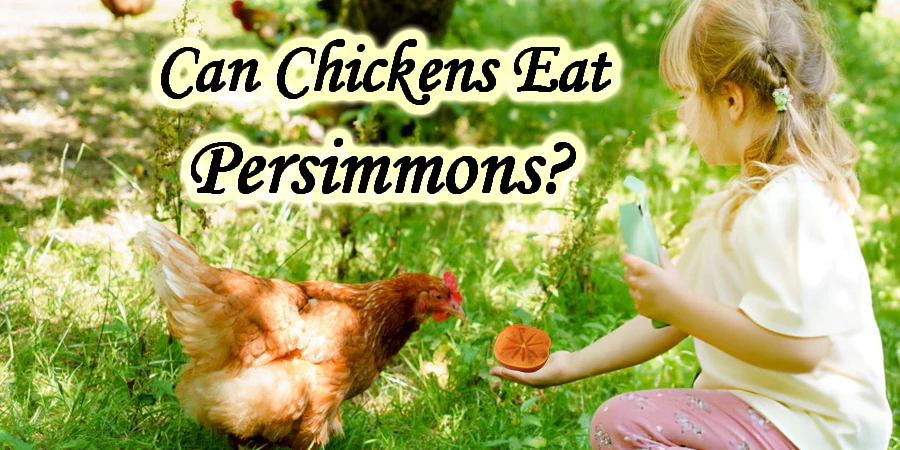
Can Chickens Eat Persimmons : Let’s Explore the Secrets
What are Persimmons?
Persimmons are juicy fruits with sweet flavors that entice the chickens. Persimmons are full of nutrients like vitamins and minerals. Antioxidant agents make it a favorable culinary delight for chickens. Persimmon excessive use may lead to some undesired results. There are many varieties of persimmons but two of them are very famous: Japanese persimmons and American Persimmons.
American Persimmons are available during the later part of the fall season while Japanese varieties in the early fall. It is essential to determine the ripeness and variety before serving it to chickens. Top of Form
Nutritional Value of Persimmons
Persimmons are a nutrient-rich diet for chickens. It can be a delightful addition to the regular diet of chickens. We will provide you with the breakdown of nutrients per 100 grams of Persimmons. The values may vary due to ripeness or variety. Here are nutrient breakdowns.
Carbohydrates value
- Sugar Content: 12.5 grams per 100 gram
- Fiber Content: 3.6 grams per 100 gram
- Protein Value: 0.6 gram per 100 gram
- Fat content: 0.2 gram per 100 gram
Vitamins Value
- Vitamin A: 81 µg (micrograms) – 9% of the Daily Value
- Vitamin C: 7.5 mg – 8% of the Daily Value
- Vitamin E: 0.73 mg – 5% of the Daily Value
- Vitamin K: 2.6 µg – 2% of the Daily Value
- Vitamin B6: 0.1 mg – 6% of the Daily Value
Minerals Value
- Potassium: 161 mg – 3% of the Daily Value
- Copper: 0.1 mg – 11% of the Daily Value
- Manganese: 0.1 mg – 5% of the Daily Value
Antioxidants
- Beta Carotene
- Lutein
- Zeaxanthin
- Cryptoxanthin
Are Persimmons Good For Chickens?
Given the nutrient value of Persimmons, we can safely say that yes Persimmons are good for chickens. Here are five reasons behind our recommendation of Persimmons as an additional diet for chickens.
- Variety in diet: Chickens like to eat a diversified diet. Persimmons are a good addition to the routine dietary plan. It stimulates the mind.
- Antioxidant agents: Persimmons contain a good quality anti-oxidative content that reduces stress and improves immune functions.
- Vitamins content: Persimmons are rich in multi-vitamins which are helpful in overall healthy growth. Vitamins help in feather growth.
- Fiber content: Fiber intake is very healthy for chickens and enhances their digestive issues. It ensures optimal bowel movement.
- Optimal Hydration: A persimmon has a good volume of water content that is very helpful in warm weather. It also improves the digestion process.
We are sure about the benefits of Persimmons but ensure the moderation while feeding to chickens. We will discuss the other precautionary measures in the later part.
Types of Persimmons and Seasonality
There are many types of Persimmons but we have considered only the most famous varieties of Persimmons here with their seasonality.
- Fuyu Persimmons: These persimmons have a tomato-like shape with a sweet flavor and crispy texture. This variety is available from September to December. Chickens like to eat these persimmons.
- Hachiya Persimmons: This variety has a corn-like shape and soft texture when fully ripped. These persimmons have a stringy nature and therefore must be used when fully ripe. They are available from October to December.
- American Persimmons: These are the most famous and widely eaten persimmons in North America. This variety is commonly used in baking and cooking. American Persimmons are available from October to December.
- Jiro Persimmons: This variety is very identical to Fuyu persimmons. Their flavor is sweet with a round shape. Like Fuyu, these persimmons are also available from September to December for serving chickens.
- Chocolate Persimmons: As the name suggests its color is a bit darker than Fuyu Persimmons with a crispy texture and sweet taste. The chocolate Persimmons are available from September to December.
How to Prepare Persimmons for Chickens
Persimmons are healthy and nutritious fruits but we have to ensure the safety of chickens. We have managed to devise a safe procedure to prepare healthy and delightful feed for our flock. Following these steps will minimize the hazardous effects of Persimmons.
- Persimmon Selection: You should select only fully ripped Persimmons for chickens. These ripe persimmons are softer and easy to digest for chickens.
- De-contamination: After selecting the ripe fruit, you must wash it thoroughly to eradicate dust, pesticide, and residues on the surface.
- Removes Stems and Leaves: It is favorable to only feed the edible flesh of the fruit. Remove the stems and leaves to ensure a safe and healthy feast.
- Remove Seeds: It is observed that seeds of persimmons contain some undesired compounds. Removing seeds reduced digestive and choking issues for chickens.
- Appropriate Size: It is advised to cut the ripe Persimmons into small pieces. It will prevent choking issues and is easier to consume for chickens.
- Diversify the Feed: You can present Persimmons to chickens with various combinations. Serve it in frozen, mashed, and dried conditions to entice the chicken’s desire.
- Moderation: Whatever ways you are adopting to prepare Persimmons for chickens always ensure moderation. It will ensure a balanced diet for chickens.
How to feed Persimmons to Chickens?
The way you feed Persimmons to your flock plays a vital role in making it a delightful feast. You can do it in several ways but these are the reliable methods you must try.
- Fresh and Ripe Persimmons: Chicken enthusiasts always suggest promoting the use of fresh fruit with a softer texture. It will add a nutrient-rich food that prevents digestive issues for chickens.
- Mashed Persimmons: To make the feast delightful use mashed persimmons and mix them with other feed. This will urge the chickens to enjoy their treat with healthy agents.
- Frozen Persimmons: It is good to serve frozen persimmons to chicken in hotter locations. The Persimmon’s frozen slices will promote the natural pecking behavior in chickens.
- Dried Persimmons: Drying the Persimmons will make it last longer. The sweetness also increases with the drying process of Persimmons. It will also promote the chewing habit of chickens.
- Persimmons Mixture: It is an adequate tactic to mix Persimmons with seeds, grains, and oats. It will make it more nutritious and flavorful for chickens. You can use other household mixtures with Persimmons.
- Persimmons Pulp: After juicing the Persimmons the remaining pulp can be used to add to the regular diet of chickens. If you remove the seeds from that pulp will be an additional benefit for chickens.
- Gradual Intake: You must introduce the new diet gradually to prevent digestive upset in the chickens. It will also add variety to the diet that stimulates the chicken’s appetite.
Can Chickens Eat Persimmons Leaves?
Leaves can contain residues and pests that cause health risks for chickens. Leaves have harmful compounds like tannins which affect the healthy working of digestion. It can create choking issues for chickens. Although serving persimmons leaves promotes foraging behavior it can be toxic for chickens.
In place of feeding Persimmons leaves to chickens go for nutrient-rich grains and green vegetables like Bok Choy. We have already provided an in-depth review on can chickens eat Bok Choy safely. Given the side effects of feeding Persimmons to chickens, we strongly discourage this action.
Can Chickens Eat Persimmons Skin?
Contrary to persimmon leaves, feeding its skin is good for the healthy growth of chickens. The skin contains a variety of nutrients helpful for the well-being of chickens but some safety measures must be considered. The skin can be contaminated and the presence of residues can’t be ignored. So, ensure the proper washing of persimmon skin.
The texture and thickness of the persimmon’s skin can be difficult to chew and digest for chickens. So always consider the choking issues. It should not be served as a primary diet of chickens. Moderation is a key factor in maintaining a well-balanced diet for chickens. We recommend the moderate use of persimmon skin for chickens.
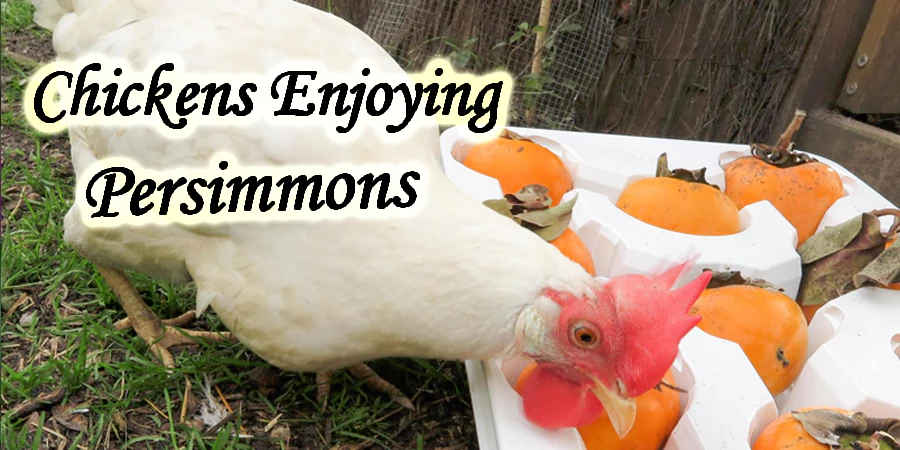
Can Chickens Eat Persimmons Seeds?
As we have already advised Persimmons seeds are not healthy for chickens. Seeds contain toxic compounds like Cynogenic glycosides which are harmful to the growth of chickens. If ingested in high volume, it can create toxicity in the stomach and promote digestive problems for chickens. The Persimmons seeds are hard to chew for chickens therefore causing the choking issue.
The rough texture of the seeds is not liked by chickens. Although seeds in a small amount will not cause severe issues but must be prevented for the well-being of our flock.
Can Baby Chickens Eat Persimmons?
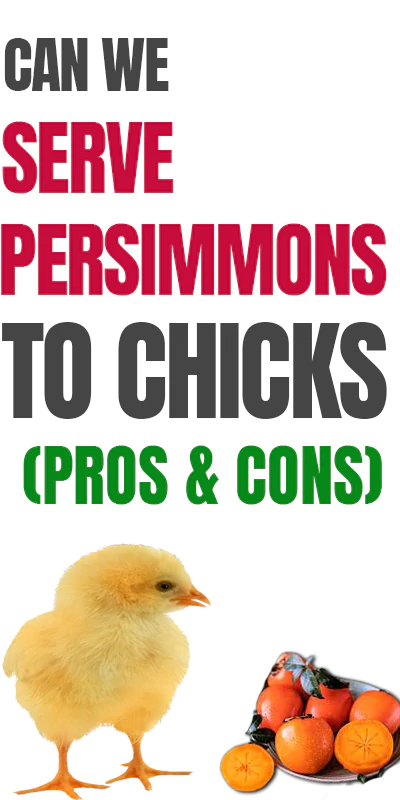
Baby chickens are very sensitive to digestive issues. We can serve persimmons to baby chicks but with certain precautionary measures. Introducing persimmons to chicks at an early age may be harmful to their digestive tract.
Chicks need a nutrient-rich feed for their optimal development/growth and Persimmons did not provide the required nutrients.
Chicks need soft and tasty treats with small pieces while Persimmons have hard skin which causes choking issues. So, always use the mashed persimmons for chicks.
If you want to add persimmons as an additive to the regular starter feed of Chicks then introduce it gradually. Moderate intake of persimmons is recommended with precautionary steps.
Frequency and Volume of Persimmons for Chickens
How many times you can serve persimmons to chickens depends on their age, size, and type of breed. As per previous observations of many poultry analysts moderation in the quantity/ volume of persimmons is very important for chickens. According to the latest study it is recommended to keep its contribution under 10% in regular diet.
Overuse of persimmons may lead to nutrient imbalance which is not suitable for healthy growth of chickens. It might affect the egg production. If you are not sure about the feasible volume of persimmons for chicken then serve in lowest value. The cautious observation of the flock plays a pivotal role in the adjustment of daily feed. If you observe anything unusual then immediately consult your veterinarian and rectify the issue.
Benefits of Feeding Persimmons to Chickens
Persimmons have lots of health benefits for chickens but we have to ensure serve them in moderation. Here are some of the most common positive impacts of Persimmons.
|
Potential Drawbacks of Persimmons to Chickens
Although the fruit is a healthy addition to the regular diet of chickens. There are some side-effects of eating persimmons in excessive quantity. These are the major consequences that must be considered before feeding Persimmons to chickens.
|
Precautionary Measures of Feeding Persimmons
As we have discussed the benefits and side effects of eating persimmons for chickens. In our discussion, one thing that is repeated time and again is safety measures before feeding persimmons to Chickens. Here is a list of precautionary measures that every chicken enthusiast must follow.
- Only use fully ripe persimmons with a soft texture.
- Thoroughly wash persimmons to ensure decontamination.
- It is better to remove seeds from persimmons.
- Use Persimmons as a secondary diet.
- Don’t overuse the fruits that cause nutrient imbalance.
- Always consider the age and size of chickens before feeding.
- Introduce persimmons gradually.
- The volume and frequency of feeding persimmons should be minimal.
- Provide mashed persimmons to chicks.
- Moderation is a big plus for chickens.
- Rotate the persimmons with other feed like grains and vegetables.
Best Alternatives to Persimmons for Chickens
If persimmons are not available in your vicinity and looking for some other food ideas for chickens then consider these options.
- Berries: Strawberries, blackberries, and raspberries are good alternatives. They are rich in vitamins and antioxidant agents like persimmons.
- Fruits: Other fruits like watermelon, cantaloupe, and Honeydew are best for chickens. We have a detailed overview about can chickens eat honeydew.
- Pumpkin and Squash: Pumpkin is a very healthy diet for chickens and can be used in both raw and cooked status. Squash also vitamin and fiber-rich feed for chickens.
- Apples: Like Persimmons, Apples do have a high sugar content. It is full of various nutrients but must be used in pieces to avoid choking issues for chickens.
- Leafy Green Vegetables: Leafy green vegetables like Spinach, lettuce, Kale, and Bok Choy are good alternatives to persimmons and are easily available as well.
- Bananas: Bananas are a favorite food for chickens for many reasons. It is full of minerals like potassium. The soft texture is liked by chickens. It is a very easy-to-digest diet for chicks.
- Mealworms: Mealworms and grubs are considered bombs of proteins. These insects are very beneficial for the overall well-being of chickens.
- Sunflower Seeds: Sunflower seeds are a healthy and nutritious diet for chickens. It contains a high volume of protein required for the healthy growth of chickens.
Conclusion
After an in-depth study of persimmons now we are in a state to answer the query: Can chickens eat persimmon fruit? So, YES chickens can enjoy the persimmons treat. This affirmation has a reasonable ground to justify our standings. We are convinced that persimmons are very rich in nutrients, fiber content, antioxidants, water content, and sweet flavor. These are all key factors involved in the optimal growth of chickens.
The fruit can support the immune system, strengthen feathers, and improve digestive functionality. We have already mentioned the common risks associated with excessive feeding of persimmons. Always use persimmons intake with listed precautionary measures. Gradual introduction is also suggested. Professional veterinarians must be consulted immediately if some adverse effect of persimmons is observed.
So, Let your feathered friends enjoy a delightful treat with persimmons but ensure the safety practices.
- Be Respectful
- Stay Relevant
- Stay Positive
- True Feedback
- Encourage Discussion
- Avoid Spamming
- No Fake News
- Don't Copy-Paste
- No Personal Attacks
- Be Respectful
- Stay Relevant
- Stay Positive
- True Feedback
- Encourage Discussion
- Avoid Spamming
- No Fake News
- Don't Copy-Paste
- No Personal Attacks
